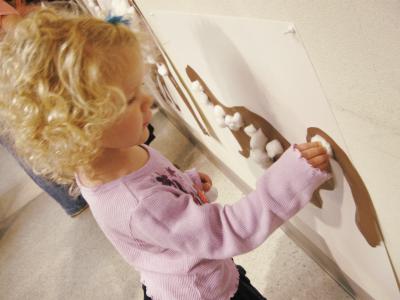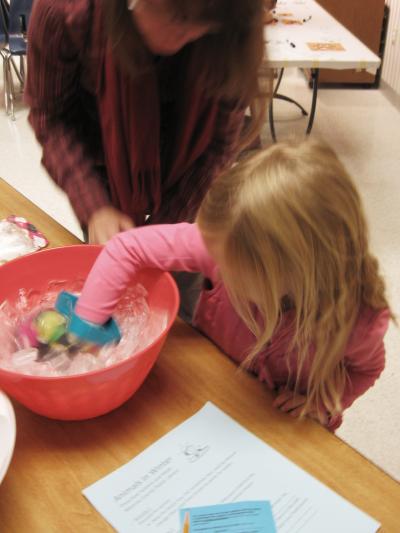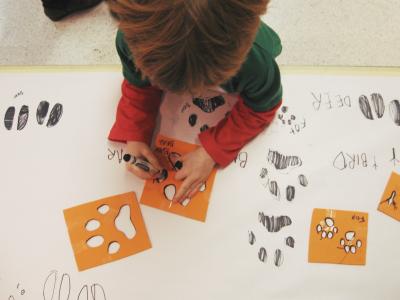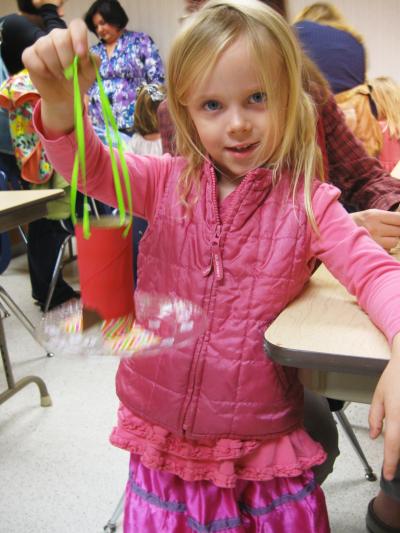As any parent knows, young children are curious about the world. At the library, we explore a range of topics during Preschool Science and Math. When the weather turns cold, I turn to one of my favorite themes for preschool science: Animals in Winter. Here are some of the activities we did in December!
Dressed for Winter
Children were invited to "dress the animals for winter" by gluing cotton balls onto shapes of a hare, fox, and weasel. This activity helps to illustrate an animal adaptation, where brown fur changes to white so that the animals are better camouflaged in the snow.

Fat? Feathers? Sweaters? Which is the Best Insulator?
Discussing the world in a scientific manner, helps children expand their vocabulary and build knowledge. This simple experiment provides a great introduction to the scientific method. First, children were asked to predict which insulator would best keep them warm: fat, feathers, or yarn. We indicated that prediction on a chart. Then, the children were asked to experiment and observe each insulator using prepared plastic bags lined with each insulator. The children placed their hand in the insulated bag and dunked it into a bowl of ice. Once they experimented with each, they evaluated whether their prediction was correct.

Animal Tracks
On a table covered with white paper, we placed foam stencils of bear, dear, bird, and fox tracks. During the program, children created a jumble of tracks in the snow using the stencils and black markers. In order to create an opportunity for writing, children were encouraged to label the tracks.

Bird Feeder
This is a simple bird feeder that preschoolers can assemble fairly quickly -- and should stay useful if it is under cover. The bird feeder provides an opportunity for the children to continue their observation of animals in winter at home. The instructions for the feeder can be found at this blog.

Nurture your young child's fascination with the natural world! The more they know, the smarter they'll grow.
